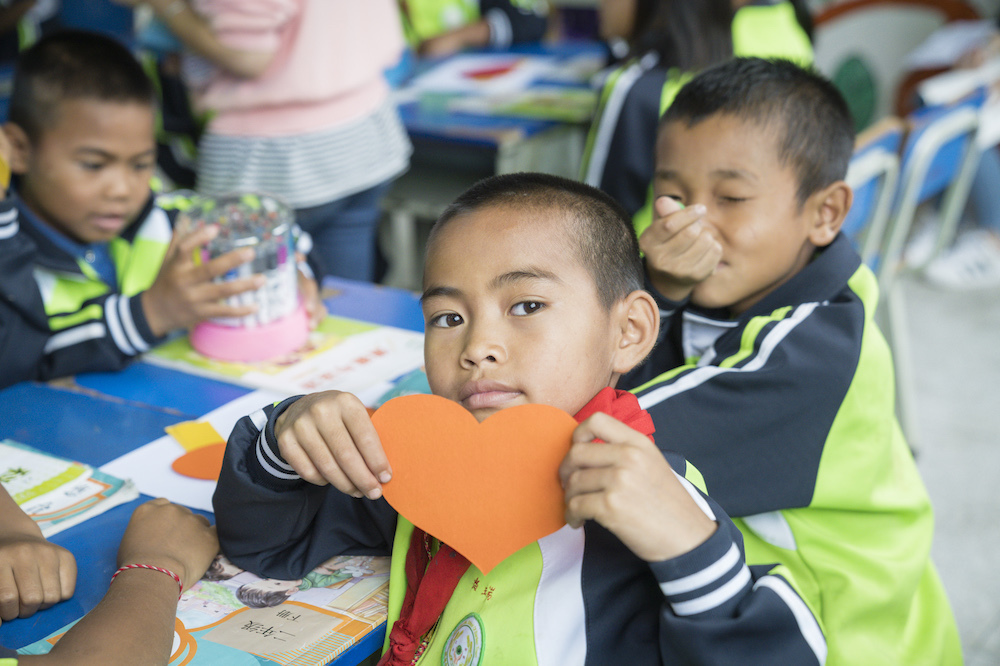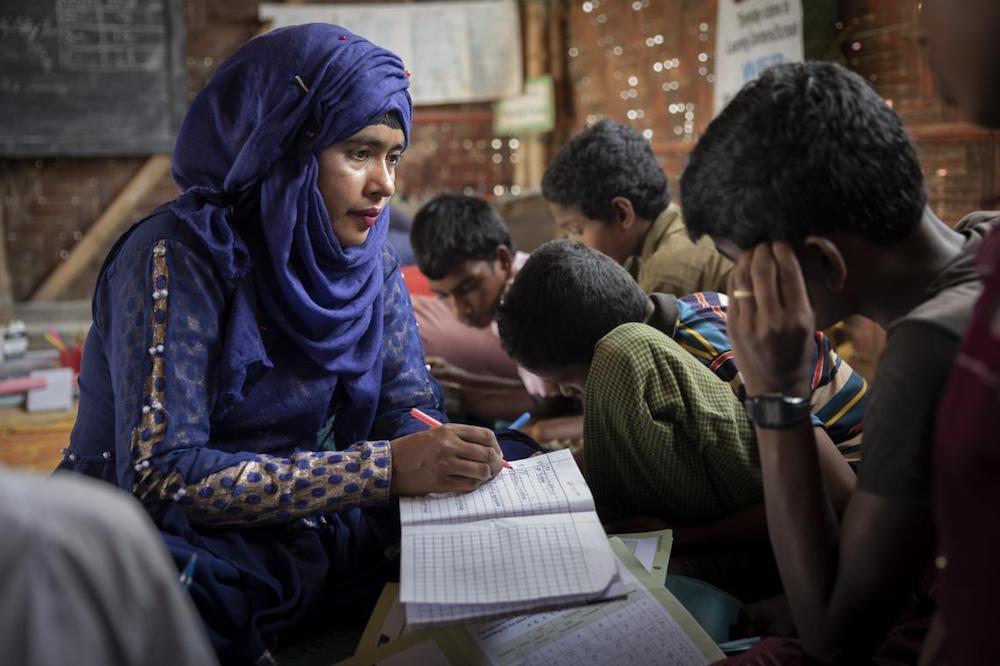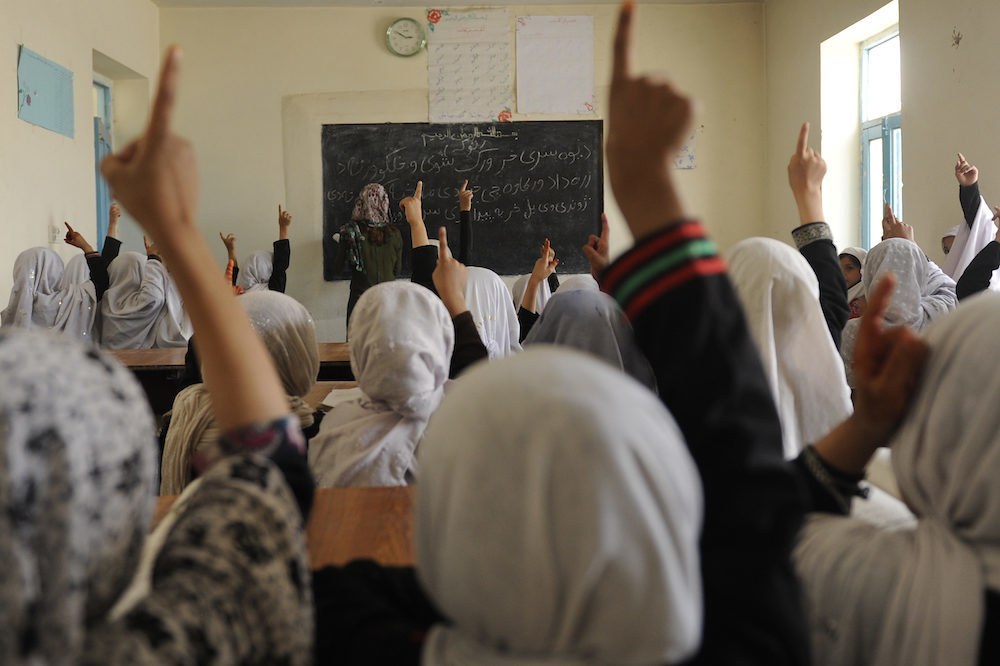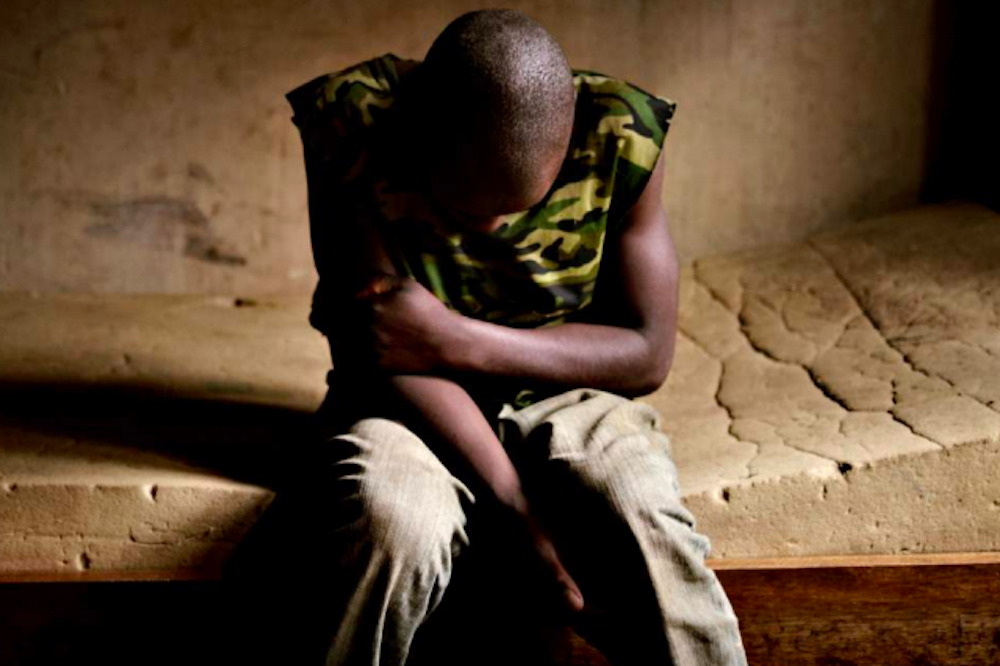
Five things you need to know this week about global education

Child soldiers, Children in conflicts, Education in emergencies, Girls' education, Refugees and internally displaced people
Coronavirus puts millions out of school, the areas where 85% of girls don't get an education and a mortar attack on a primary school - it's all in our news roundup.
Coronavirus shuts down schools in China
The coronavirus has put millions of children out of school in China. The shutdown of education to reduce the risk of the virus spreading has been extended until at least the end of this month in several provinces.
Shandong – which has a population of 100million – said all types of schools will stay closed until the end of February to guarantee students’ safety.
Hebei – which surrounds the capital Beijing and has 75 million residents – will keep classrooms closed until at least March 1 to control the coronavirus outbreak. Schools also remain shut in a number of other provinces and municipalities, including Jiangsu and Shanghai.
China’s education ministry said a cloud platform will be launched on February 17 to provide students in elementary and secondary schools with resources. For students in remote or rural areas with poor internet access, a Chinese education television channel will start airing classes on February 17 for them to study at home.
In Hong Kong, Education Secretary Kevin Yeung said secondary and primary schools would not return from an already prolonged break until at least March 16.
19 children injured by mortar attack on school in Myanmar

Teacher Rozina Aktar helps students with their school work in a UNICEF-supported learning centre in Bangladesh (UNICEF)
At least 19 children were wounded when a village primary school was hit by mortar shelling in Myanmar’s Rakhine state yesterday.
Clashes between government troops and ethnic insurgents have intensified in Rakhine, where more than 730,000 Rohingya Muslims fled a military crackdown in 2017. The Arakan Army, which recruits from the mostly Buddhist majority, has been fighting for greater autonomy for the western region from the central government.
Schools are meant to be safe spaces where children can learn free from danger. The Safe Schools Declaration – a commitment to protect schools from attacks and military occupation – has been signed by 101 countries.
Meanwhile, UNICEF has released details of how a pilot programme to introduce the Myanmar school curriculum to Rohingya refugee children will work. Bangladesh finally agreed last month to offer formal education to children under 14 living in refugee camps.
A pilot starting in April will help 10,000 students from grades six to nine because they currently have less access to education. It will then be expanded to other grades. An extra 250 teachers will be recruited in addition to the existing 8,900 teachers to teach the children in a double-shift system.
85% of girls out of school in some Afghan areas

Many girls in Afghanistan are still not getting an education (GPE)
The number of children at primary school in Afghanistan increased from just one million to 8.5 million between 2002 and 2019 – but a third of school-age children (3.7 million) are still not getting an education.
The statistics are revealed in a humanitarian update by the UN Office for the Coordination of Humanitarian Affairs. About 60% of out-of-school children are girls and in some provinces as many as 85% of girls are not in school.
The update says: “While girls’ access to education may be limited by cultural expectations, in many cases it is also tied to perceived and real security risks, as well as the appropriateness of the school curriculum and physical set-up under local cultural norms.”
Only about 5% of children with disabilities are in school. Attacks on schools also continue to result in children being deprived of education. During 2019, 488 schools were reported to have been forcibly closed due to insecurity, affecting around 150,000 children – 72,000 girls and 78,000 boys.
Call for action on girls' education
All girls should have the same opportunities and access to education as boys.
Yesterday, Executive Director @phumzileunwomen joined celebrities, activists and world leaders at the #DriveForFive , led by @irishmissionun.
See the highlights: https://t.co/YyypX91aFS
— UN Women (@UN_Women) February 12, 2020
Celebrities, youth activists and world leaders gathered at the UN this week to call for action on the issue of adolescent girls’ education. More than 130 million girls worldwide are not in school.
U2 singer Bono and former Irish President Mary Robinson were at the event, along with UN Secretary-General António Guterres and UN Women Executive Director Phumzile Mlambo-Ngcuka.
“One of these girls who is getting an education today, could be the one coming up with the solution to climate change tomorrow. We need to ask for help and demand education for all girls,” said Bono, who called on men to play their part in advancing gender equality.
Other speakers included Sonita Alizadeh, an Afghan rapper and youth activist who shared her own experience of being forced to marry while still a child. She said: “I want everyone to know that a girl’s education is worth a lot more than her dowry.”
Missionaries help child soldiers through education

Soldier recruitment acts as a barrier to education (Child soldiers international)
To mark International Day Against the Use of Child Soldiers – also known as Red Hand Day – on February 12, Salesian Missions has highlighted its programmes to help former child recruits through education.
Salesian missionaries began working in 2001 to rehabilitate ex-child soldiers in Sierra Leone. Since then, Don Bosco Fambul in the capital Freetown has become one of the country’s leading child welfare organisations.
In Liberia, the Don Bosco Youth Center in Monrovia provides a foundation of education and support for former child soldiers and other young people with limited opportunities.
“Children utilised in hostilities and war have faced unimaginable violence and abuses and need our support to have a second chance in life,” says Father Gus Baek, director of Salesian Missions. “In countries around the globe, Salesian missionaries work with former child soldiers so that they may overcome the traumas of war and reintegrate into society.”
More news

